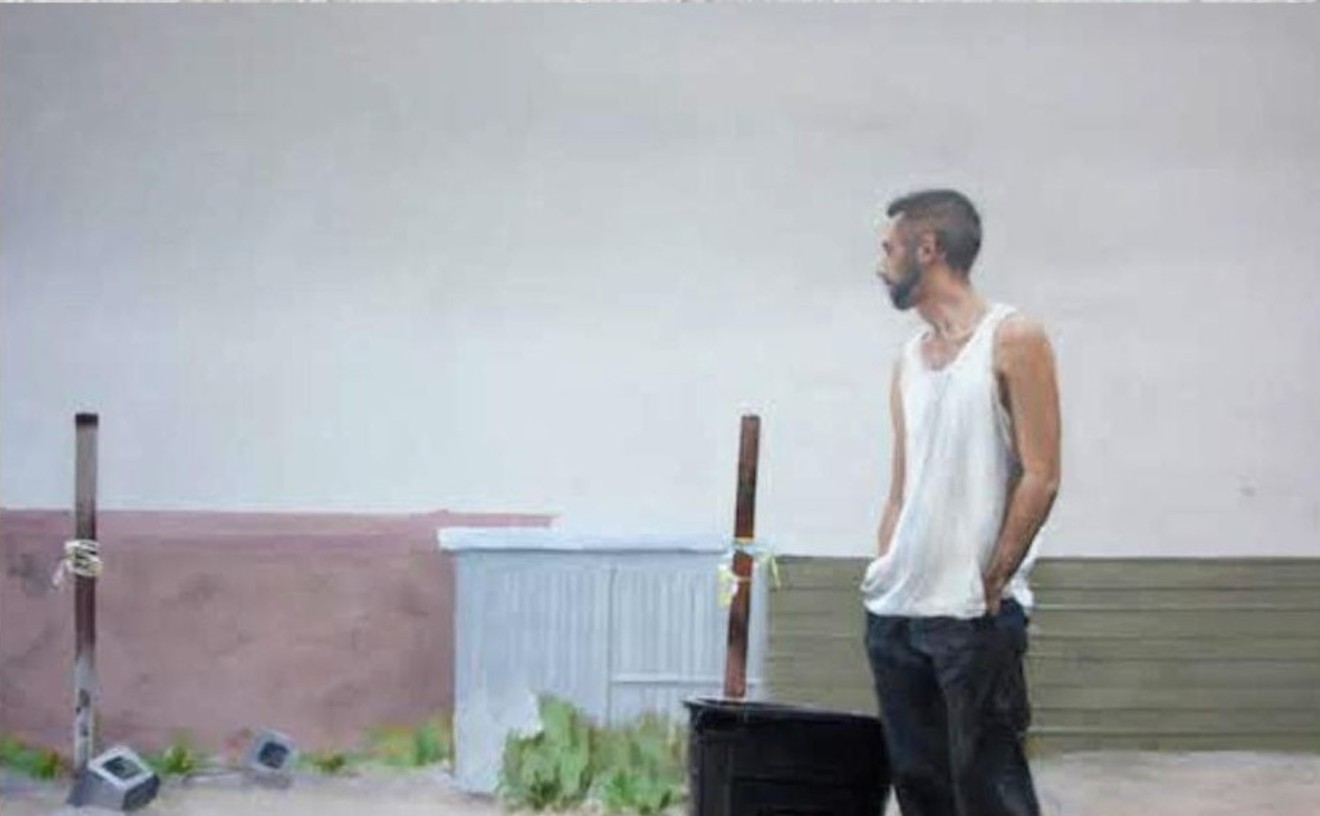Not surprisingly, the directors agreed that reports of the death of the art museum are greatly exaggerated.
There in a tidy row sat Phoenix Art Museum director Jim Ballinger, Scottsdale Museum of Contemporary Art's Tim Rodgers, ASU Art Museum's Gordon Knox and the Heard Museum's Letitia Chambers,
all of whom more than artfully answered Nilsen's sometimes messily
framed questions about what's to become of art museums in this instant
gratification/technology-obsessed global society of ours.
Nilsen expressed concern that museums are devolving
According to PAM's Jim Ballinger, museums can no longer compete in the area of art acquisition for collections with the international high rollers at auction who consider art an investment rather than an aesthetic experience to be treasured and shared with the public.
ASU's Gordon Knox noted that the very term "museum" came into common usage during the French Revolution, during which the revolutionary government seized royal and private art collections and opened them to the public for viewing. Not just a repository for art objects anymore, contemporary art museums are concerned with getting the community to connect to those objects.
"Art pushes the limits of what we know," Knox said, and museums assist the movement of ideas from artists, whose function is to critically re-evaluate the world around them, to the general public. In the future, Knox says he feels that objects in museum collections will be starting points for discussion and that museum goers will interactively engage with those objects. University art museums in particular will be involved in collaborating with different disciplines to investigate art, which he, as an anthropologist, believes is a form of knowledge production that is and must be generationally transmitted. To that end, technology must be and is being embraced by museums to further their goals.
SMoCA's Tim Rodgers pointed out that today's museums are much more didactic than aesthetic and should not be treated as classrooms, malls or entertainment centers, though he recognizes the public need for help in understanding art, especially given the virtual non-existence of arts education in our school systems. To him, museums -- at the core -- are places for heightened aesthetic experiences, experiences one can get nowhere else.
Letitia Chambers, from the Heard, felt it was critical, especially for her museum, to use collection objects that have been stored and archived for years. Displaying older work is essential to demonstrating traditional art's relationship to contemporary art, as well as the connections and commonalities of different cultures. Chambers also believes that, with a change in audience demographics, there may be some loss of audience, though she believes in the power of the core arts audience to stand up for them against assault by anti-art types who view it as a philosophical issue.
Bottom line: Museums will continue to exist and evolve with the evolution of our culture in not just technological areas, but in social and experiential areas as well. And who knows? Maybe they'll actually thrive in the future.










